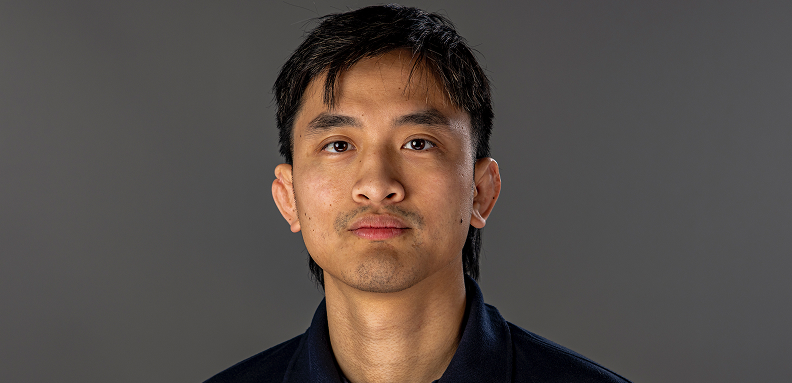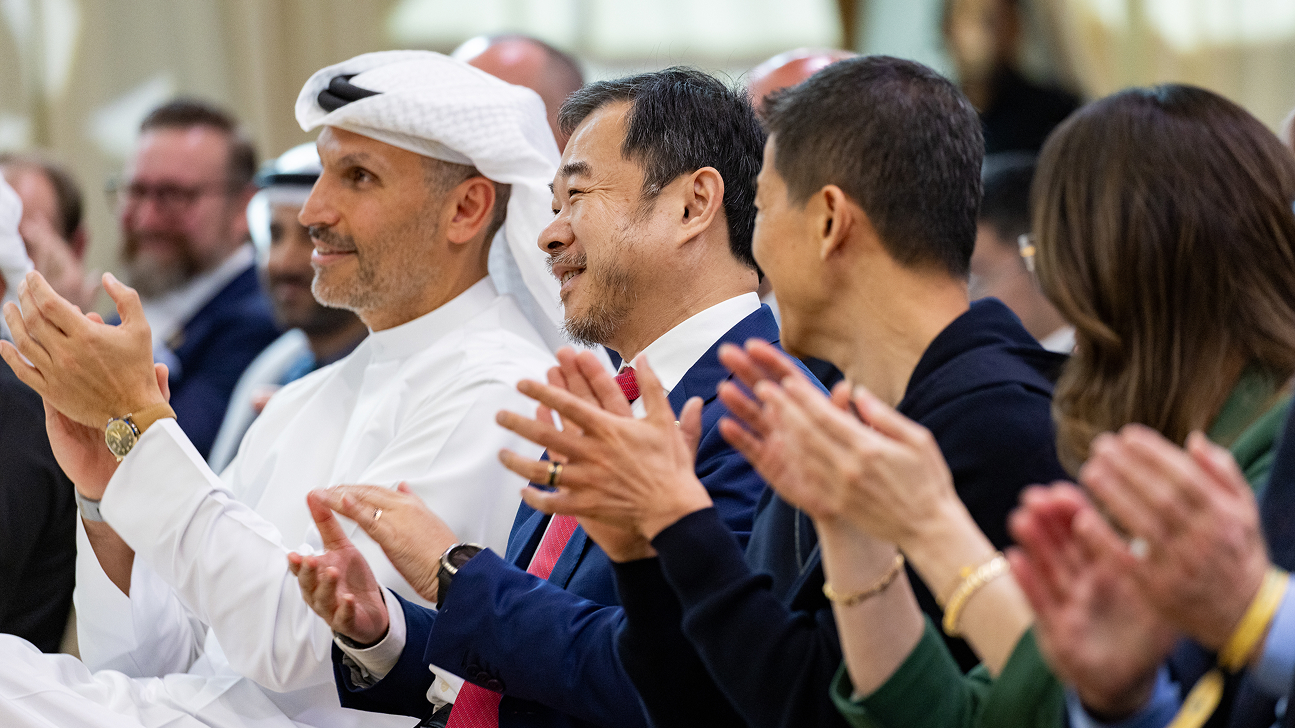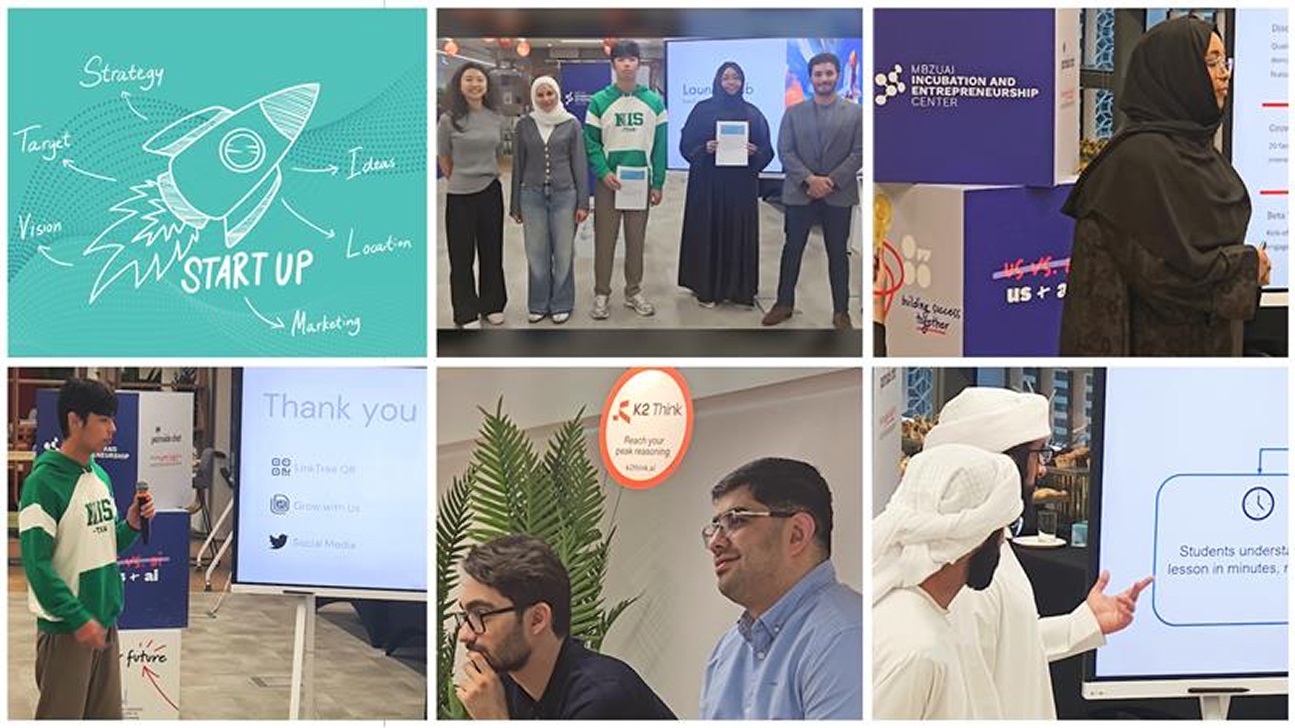Alumni Spotlight: Changing the game for the UAE’s healthcare industry
Friday, July 19, 2024

The healthcare industry is widely recognised as one of the main beneficiaries of the rise in artificial intelligence capabilities in recent years. Whether producing more accurate diagnoses, enabling more personalised treatment, or enhancing the monitoring of patients, AI has the potential to drastically improve every level of care, from hospitals and clinics to administration and affordability.
Pharmaceuticals is one of the areas within the industry that stands to make significant strides in its efficacy, safety, efficiency and costs, with AI helping to shorten the drug research and development process, as well as optimising and personalising therapy for each patient. And it is here that Freddy Jimenez, regional innovation lead for Pfizer in the Middle East, Africa and Russia, is hoping to make a mark.
“I came to the UAE five years ago to take up a very exciting role, and very quickly learned about AI in the country,” he said. “I wanted to do something that would make an impact and really accelerate healthcare in the UAE. It’s not so easy because the industry is so heavily regulated, and we have to be careful with every decision we make. But the company is working hard to change the game somehow, and there are opportunities to see what a new medical world can look like.”
With a degree in computer science engineering and an MBA from his home country of Colombia, followed by certificates from MIT and Harvard Business School in digital business strategy, behavioural economics, AI, and executive leadership, among others, Jimenez’s academic career has always been at the intersection of business, technology and innovation.
At Pfizer he is primarily concerned with finding and implementing AI solutions for healthcare challenges in the UAE and beyond, and so joined the Executive Education Program at Mohamed bin Zayed University of Artificial Intelligence (MBZUAI) to expand his horizons. Drawn by the university’s vision to use AI as a force for good, Jimenez explained that that he saw a major opportunity to drive the country’s healthcare industry forward.
“When I started learning about AI, I saw that it would change the game, but I didn’t expect it to change things so quickly,” he said. “The technology is moving faster than the regulation, so I really needed to find a good strategic approach to how AI can be best used in healthcare. This is where the program was excellent. We had access to legends of AI — professors who did amazing things in the 1970s and 80s, finding solutions and solving problems with very little computational power. These masterminds could do so much with limited resources and were really inspirational.
“Then there was the networking. I really enjoyed the conversations I had with people from academia, business and government. These are the relationships you need to build to accelerate AI in the UAE. We could discuss where we are in the UAE right now, what are the challenges, and how we could collaborate and accelerate, and that was really inspiring for me.”
Jimenez believes he is now better equipped to advance and optimise AI within Pfizer and across the wider healthcare industry. One way he is doing this is through an initiative he is leading as part of the Harvard Club, collaborating with MBZUAI and the UAE government’s Regulations Lab to create a regulatory framework for AI in healthcare.
“We’re interested to create new models across healthcare,” he said. “We have the talent, we have the knowledge, so let’s do something with them. We have an MoU with stakeholders who can come to the table and provide their expertise, create opportunities, and build solutions. We have a great opportunity to enhance access and affordability for patients, and develop personalised medicine, and for me, this is the most important thing.”
Alongside his work with Pfizer and other healthcare endeavours, Jimenez also leads the innovation and entrepreneurship workstream of MBZUAI’s Alumni Advisory Board. Through the board, he hopes to drive mutual benefit for the students and the UAE by connecting students with real world problems and helping them build and scale solutions to local and global challenges. Working across multiple industries — not only healthcare, but insurance, food, and others — Jimenez believes that connecting students with industry can have profound results.
“The potential here is incredible,” he said. “The university’s entrepreneurship efforts are amazing, and the Advisory Board helps to connect the dots and connect students with real world applications. Our vision is to accelerate that link between students and real world, so we are looking at what the top three challenges are that they can work on, and exploring how can we inspire the students to meet these challenges.
“Part of what we’re doing is also helping students to raise finances to pursue their work, or attract investment. Combined with the help we can give them with strategy, teams, goals, and so on, there’s a great opportunity to help them connect with industry and find solutions. The UAE is a special place because everybody is working together, from academia to business to government, and that will help us do things that other countries cannot.”
Jimenez pointed to the example of Malaffi, the region’s first Health Information Exchange platform. Serving as a centralised database of unified patient records, Malaffi connects public and private healthcare providers across Abu Dhabi, allowing them to safely and securely share important patient health information in real-time, and thus improving healthcare quality and patient outcomes.
“This is a big difference between the UAE and other countries such as the US or UK,” explained Jimenez. Being able to share information like this gives an opportunity to create real and applicable solutions. And there’s an opportunity for the university to play a leading role. Dr Mohammad (Yaqub, associate professor of computer vision at MBZUAI) has worked with Malaffi, for example, and our vision as the Alumni Advisory Board is to accelerate the link between students and the real world, so that the students can have real impact through their work.
“Part of our role is to identify the top three challenges out there, and then inspire the students to meet these challenges. And as we continue to understand the students’ needs, their teams, their goals, and the university’s strategy, we will be able to connect them even more effectively to industry. Watch this space because there’s much more to come.”
With industry leaders like Jimenez helping to making these connections and tie these threads together, the UAE’s healthcare ecosystem is in as strong as position as ever to grow, develop, and show the rest of the world what can be done when academia and industry work together to leverage the potential of AI.
Related
Alumni Spotlight: driving AI transformation at a financial giant
MBZUAI alumnus Steven Hoang explains how he is using his master’s in machine learning to help shape.....
- student ,
- Alumni Spotlight ,
- finance ,
- alumni ,
- machine learning ,
MBZUAI marks five years of pioneering AI excellence with anniversary ceremony and weeklong celebrations
The celebrations were held under the theme “Pioneering Tomorrow: AI, Science and Humanity,” and featured events, lectures,.....
- celebration ,
- five year anniversary ,
- ceremony ,
- event ,
- board of trustees ,
- campus ,
- students ,
- faculty ,
MBZUAI's Launch Lab equips alumni and students with practical startup tools
The six-week pilot program brought alumni and students together to turn early startup ideas into tangible ventures.
- entrepreneurship ,
- alumni ,
- startups ,
- alumni relations ,
- launch lab ,


